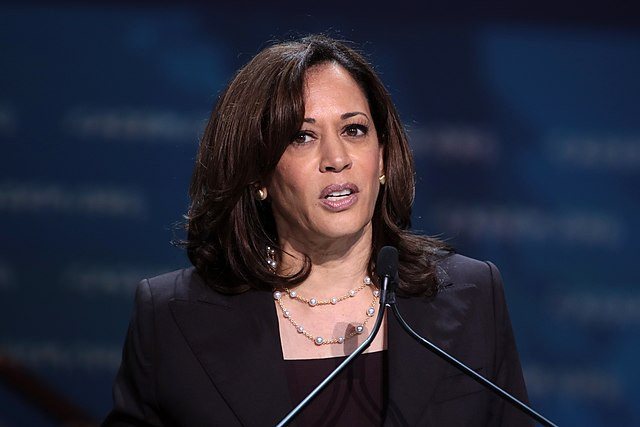In an in-depth interview with CBS's 60 Minutes, Vice President Kamala Harris faced tough questions on various pressing issues, including her administration's stance on border security, the economy, and foreign policy. As Election Day draws closer, Harris has ramped up her media appearances, using this platform to address criticisms and clarify her positions ahead of the final weeks of the campaign.
During the wide-ranging interview, CBS correspondent Bill Whitaker pressed Harris on the Biden administration's handling of immigration and the rising number of migrant crossings at the U.S.-Mexico border. Harris acknowledged the severity of the problem, calling migration a "longstanding issue," but stopped short of admitting whether the administration should have acted sooner to tighten border controls. Harris instead placed the onus on Congress to act, stating, "We need Congress to be able to act to actually fix the problem."
When Whitaker pointed out that the number of undocumented migrants surged during the first three years of the administration, quadrupling from the last year of the Trump presidency, Harris emphasized the administration's efforts. "From day one, we have been offering solutions," she said, referencing the immigration bill proposed to Congress in early 2021. She noted that border crossings have since decreased but reiterated the need for legislative action to address the root of the problem.
The interview also delved into foreign policy, specifically the ongoing war in Ukraine. Harris firmly stated that she would not engage in direct negotiations with Russian President Vladimir Putin unless Ukraine was included in the talks. "Ukraine must have a say in the future of Ukraine," she said. She rejected former President Donald Trump's claim that he could end the war on "day one" of his presidency, describing his approach as "surrender." Harris argued that if Trump were in office, "Putin would be sitting in Kyiv right now."
On the topic of NATO expansion, Harris was cautious, refusing to speculate on whether she would support Ukraine's membership. "Those are all issues that we will deal with if and when it arrives at that point," she said, stressing that the administration's current focus is on supporting Ukraine's defense against Russia's aggression.
Harris also discussed the economy, defending her administration's plan to strengthen it while facing questions about how she would pay for her proposals. She indicated that raising taxes on the wealthiest Americans would be key to financing her agenda. "My economic plan would strengthen America's economy. His [Trump's] would weaken it," Harris said, drawing a clear contrast between her approach and that of her Republican opponent. She added that her policies would prioritize "strengthening small businesses" to drive growth.
Addressing the national debt, Harris acknowledged that her administration's policies would add $3.5 trillion to the deficit over the next decade, according to the non-partisan Committee for a Responsible Federal Budget. However, the same analysis found that Trump's policies would add $7.5 trillion, leading Harris to criticize her opponent for failing to offer fiscally responsible solutions.
The interview also touched on personal matters. Harris revealed that she owns a firearm, specifically a Glock, citing her background in law enforcement as a former district attorney in California. "I've had it for quite some time," she said, confirming that she has used it at a shooting range. Her admission is notable as the administration navigates debates on gun ownership and legislation.
At one point, the interview shifted to her alliance with former Wyoming Representative Liz Cheney, who has been a vocal critic of Trump. Cheney joined Harris in Ripon, Wisconsin, the birthplace of the Republican Party, in a public display of bipartisan support. Cheney praised Harris for her commitment to upholding the Constitution and endorsed her candidacy. "I know I would've said, 'That's exactly what I'll do,'" Cheney said, in reference to supporting Harris's defense of the rule of law.
In a lighter moment, Harris acknowledged that her running mate, Minnesota Governor Tim Walz, has had to be more careful with his words. Walz admitted that Harris advised him to "choose [his] words more carefully" after he faced scrutiny for misstating his military record and past experiences.
The interview came as Harris continues her media blitz in the final stretch of the campaign, appearing on several prominent platforms, including The Late Show with Stephen Colbert and the Call Her Daddy podcast. With Trump declining CBS's invitation to participate in a 60 Minutes interview, Harris used the opportunity to draw a sharp contrast between her approach and the former president's, accusing Trump of avoiding tough questions and offering nothing but personal grievances during his rallies.
Harris closed by reiterating her belief that the American people are ready for a change. "You will not hear [from Trump] about how he is going to try to bring the country together, find common ground," she said. "And that is why I believe in my soul and heart, the American people are ready to turn the page."






